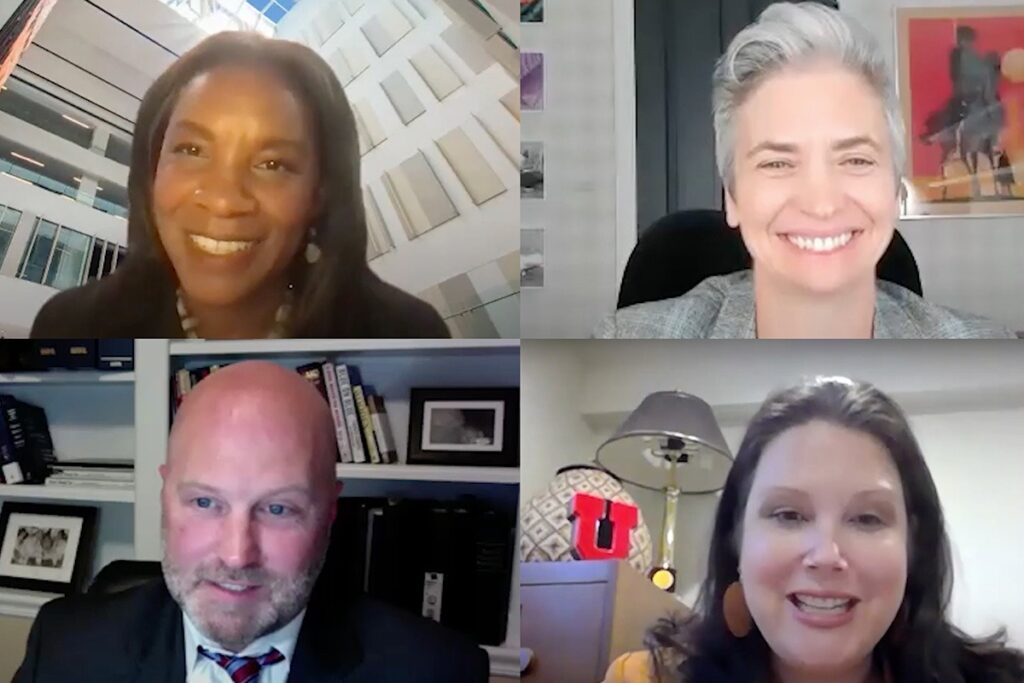By Jonelle White.

Despite the disruptions of the pandemic, the college found ways to carry on many of its most cherished traditions this year. That included the 38th annual Jefferson B. Fordham Debate, which was held virtually on October 5. We knew it was important to hold this event no matter what—because if there’s one thing lawyers enjoy (whether they’re listening or contributing), it’s a lively debate!
This year’s debate, “Qualified Immunity: Apportioning Accountability,” focused on the doctrine of qualified immunity, and the potential consequences of ending or amending it. The issue is timely: Across the U.S., we’ve seen calls for police accountability increase significantly in the aftermath of recent high-profile killings involving law enforcement officers.
Qualified immunity is a defense available to law enforcement officers sued for alleged civil rights violations, and it continues to be a point of contention among legislators and the public. Proponents argue that without the shield of qualified immunity, public safety would suffer because officers might hesitate in situations that require split-second decision-making—particularly if there is a risk of civil liability. Meanwhile, opponents of qualified immunity are concerned that the doctrine frees police to use excessive force with impunity—and denies alleged victims of police violence from accessing effective judicial remedy.
Debating this issue were Jason Johnson, president of the Law Enforcement Legal Defense Fund, and Joanna C. Schwartz, professor of law at University of California Los Angeles. They explored a central question: Is it possible to adjust policy levers to reduce police misconduct—while also protecting public safety, civil rights and civil liberties?
Professor Erika George, who organized and hosted the debate, said the topic is worthy of substantive, thoughtful and respectful debate—now more than ever. “I thought it appropriate to host a debate on qualified immunity in order to help us understand the history of the doctrine, and to appreciate the context of new calls to address racial injustices in police encounters,” she said.
